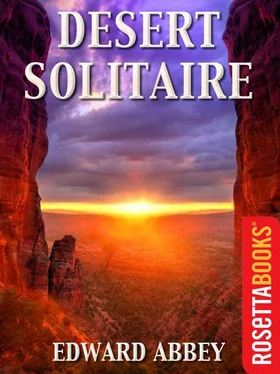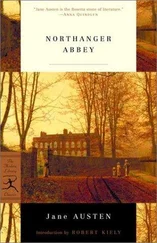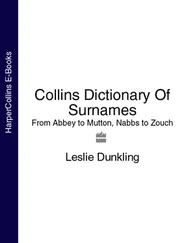Abbey, Edward - Desert Solitaire (Edward Abbey Series )
Здесь есть возможность читать онлайн «Abbey, Edward - Desert Solitaire (Edward Abbey Series )» — ознакомительный отрывок электронной книги совершенно бесплатно, а после прочтения отрывка купить полную версию. В некоторых случаях можно слушать аудио, скачать через торрент в формате fb2 и присутствует краткое содержание. Год выпуска: 2011, Издательство: RosettaBooks, Жанр: Старинная литература, на английском языке. Описание произведения, (предисловие) а так же отзывы посетителей доступны на портале библиотеки ЛибКат.
- Название:Desert Solitaire (Edward Abbey Series )
- Автор:
- Издательство:RosettaBooks
- Жанр:
- Год:2011
- ISBN:нет данных
- Рейтинг книги:4 / 5. Голосов: 1
-
Избранное:Добавить в избранное
- Отзывы:
-
Ваша оценка:
- 80
- 1
- 2
- 3
- 4
- 5
Desert Solitaire (Edward Abbey Series ): краткое содержание, описание и аннотация
Предлагаем к чтению аннотацию, описание, краткое содержание или предисловие (зависит от того, что написал сам автор книги «Desert Solitaire (Edward Abbey Series )»). Если вы не нашли необходимую информацию о книге — напишите в комментариях, мы постараемся отыскать её.
Desert Solitaire (Edward Abbey Series ) — читать онлайн ознакомительный отрывок
Ниже представлен текст книги, разбитый по страницам. Система сохранения места последней прочитанной страницы, позволяет с удобством читать онлайн бесплатно книгу «Desert Solitaire (Edward Abbey Series )», без необходимости каждый раз заново искать на чём Вы остановились. Поставьте закладку, и сможете в любой момент перейти на страницу, на которой закончили чтение.
Интервал:
Закладка:
No, wilderness is not a luxury but a necessity of the human spirit, and as vital to our lives as water and good bread. A civilization which destroys what little remains of the wild, the spare, the original, is cutting itself off from its origins and betraying the principle of civilization itself.
If industrial man continues to multiply his numbers and expand his operations he will succeed in his apparent intention, to seal himself off from the natural and isolate himself within a synthetic prison of his own making. He will make himself an exile from the earth and then will know at last, if he is still capable of feeling anything, the pain and agony of final loss. He will understand what the captive Zia Indians meant when they made a song out of their sickness for home:
My home over there,
Now I remember it;
And when I see that mountain far away,
Why then I weep,
Why then I weep,
Remembering my home.
Down the river. Our boats turn slowly in the drift, we see through a break in the canyon walls a part of the Henry Mountains retreating to the northwest, last range in the United States to be named and explored and mapped. Mount Ellsworth, one of the lower peaks, is the one we see, rising sharp and craggy against the sky, a laccolithic dome of varicolored sedimentary and igneous rock (part of the intrusion now exposed by erosion) furred over with a growth of pinyon pine, juniper and jackpine at the highest elevations. The flowers we cannot see but easily imagine will also be blooming up there in the cool—larkspur, lupine, Indian paintbrush, the Sego lily, perhaps a few columbines.
The boats continue to turn, and facing downriver now we see to the southwest, far beyond the opening in the cliffs, a kind of convulsed hump in the earth’s stony crust. It is the southern end of the Waterpocket Fold, a fifty-mile-long monocline or ridge of warped sandstone, eroded along its base into triangular studs of naked rock that look, from here, like the teeth of a mowing machine. This will be our only glimpse of a weird area that is sure to be, someday, another national park complete with police, administrators, paved highways, automobile nature trails, official scenic viewpoints, designated campgrounds, Laundromats, cafeterias, Coke machines, flush toilets and admission fees. If you wish to see it as it should be seen, don’t wait—there’s little time. How do you get there? Well, I couldn’t tell you.
A little after noon, when the surface of the river is gleaming under the sun like molten amber, we see an abandoned mining camp ahead of us on the eastern shore. We paddle hard to port and beach our craft on a steep and slippery mud bank, tethering it to a stout willow tree.
While Ralph makes himself comfortable in the shade, happy to take a siesta—he is one of those fortunates who can sleep at will or stay up talking and drinking till dawn, like Socrates, if he prefers— I go on up beyond the vegetated shore to the ledge of barren redrock on which the camp is situated.
Here I find the familiar fascinating semimelancholy debris of free enterprise: rusted tin cans, a roofless frame shack, the rags of tents and broken canvas cots, rusty shovels, a blunted old iron bullprick, rotting rat-bitten steel-toed boots, dynamite boxes, battered hard hats, two sticks of blasting powder (but no caps), sheaves of legal documents pertaining to mining claims and production agreements (rather interesting reading), a couple of withered sun-bleached topographical maps, and an astonishing heap of tattered magazines of the All-Man He-Male type— True (false), Male (a little queer), Stag (full of ragged does blasting Japs with machine guns), Saga (fairy tales), Real (quite phoney) and others of the genre , all of them badly chewed up by rodents, barely readable, with the best pictures torn out by some scoundrel. These fellows must have spent a lot of time reading; no wonder they failed to find whatever they’d been looking for—gold? God? uranium? —and had to leave.
I climb the hill behind this ghost camp, up mountainous dunes of copper-colored sand, and find the trace of a jeep trail winding off to the east into a never-never land of black buttes, salt domes and prehistoric plateaus inhabited only by mule deer and mountain lions. Perhaps this track leads to the mine; there are no diggings of any kind in the vicinity of the camp. The prospectors or miners had no doubt established their camp near the river so they’d have a reliable water supply. Everything else they needed, from boots to beans, perhaps even the jeep, must have been brought in by way of the river, for this camp is a long long way from any road known to the mapmakers.
The climb gives me some comprehension of the fact that we are down inside the mantle of the earth. For though I stand on the summit of a considerable hill, at least a thousand feet above the river, I can see no more than ten miles in any direction. On all points the view is cut off, near or far, by the unscalable walls of buttes, mesas and plateaus far higher than the hill beneath my feet. They are ranged in bench or terrace fashion, up from the river, forming an almost horizontal skyline all around me which obstructs any sight of the mountains that I know are out there—the Henry Mountains to the northwest, the La Sal Mountains to the northeast, the Blue Mountains to the east, Navajo Mountain somewhere on the south, and Kaiparowits on the west or southwest.
In all of this vast well of space enclosed by mesa and plateau, a great irregular arena of right angles and sheer rock in which the entire population and all the works of—Manhattan, say—could easily be hidden, there is no sign whatever, anywhere, of human or animal life. Nothing, not even a soaring buzzard. In the heat and stillness nothing moves, nothing stirs. The silence is complete.
It is a strange fact that in the canyon country the closer you get to the river which is the living artery of the entire area, the drier, more barren, less habitable the land becomes. In this respect the desert of the Colorado is opposite to that of the Nile in Egypt or the Rio Grande in New Mexico where, in both cases, life, men and the cities are gathered along the shores of the rivers. Along the Colorado River there is no town from Moab in Utah to Needles in California, a distance of over a thousand miles (if we except the two small, improvised, completely artificial company towns connected with the building and operation of Glen Canyon Dam and Boulder Dam).
What is true of human life is true also of plant life: except for the comparatively lush growth along the very banks of the river and on the floors of the many narrow side canyons, life in all forms diminishes in quantity as you approach the Colorado. The mountains are covered with forest; the plateaus are also forested, at the higher elevations with aspen and yellowpine and farther down with pinyon and juniper; but as you descend through the lateral canyons toward the great river the pinyon and juniper yield to sagebrush and other shrubs; from that to yucca, prickly pear and ephedra; and from that, nearing the river, to almost nothing but scattered clumps of saltbush and blackbrush and the fragile annuals—snakeweed, mule-ear sunflowers, and other widely dispersed rain-dependent growths, separated from each other by open spaces of nothing but sand and rock.
The reason for this apparent anomaly is twofold. First, though all of the plateau and canyon province must be classified as an arid or semiarid region, the higher tablelands naturally receive a little more rainfall, on the average, than the lower areas. Second, the Colorado River carries its great volume of water swiftly seaward well below the general level of the surrounding land, through deep and largely impassable gorges (such as the Grand Canyon), and therefore does not and cannot water the desert through which it passes. Not until the river reaches the open country beyond the canyons is its water utilizable for agriculture and there, as we know, California and Arizona and Mexico have been fighting each other for half a century over the division of the precious liquid. (Each additional dam that is built on the Colorado, incidentally, reduces the quantity of usable water, because of unavoidable losses through evaporation and percolation into the porous sandstone containing the reservoirs.)
Читать дальшеИнтервал:
Закладка:
Похожие книги на «Desert Solitaire (Edward Abbey Series )»
Представляем Вашему вниманию похожие книги на «Desert Solitaire (Edward Abbey Series )» списком для выбора. Мы отобрали схожую по названию и смыслу литературу в надежде предоставить читателям больше вариантов отыскать новые, интересные, ещё непрочитанные произведения.
Обсуждение, отзывы о книге «Desert Solitaire (Edward Abbey Series )» и просто собственные мнения читателей. Оставьте ваши комментарии, напишите, что Вы думаете о произведении, его смысле или главных героях. Укажите что конкретно понравилось, а что нет, и почему Вы так считаете.












